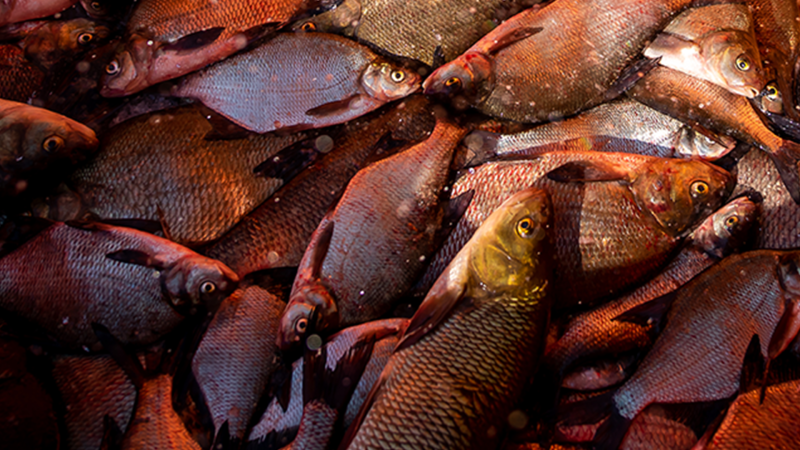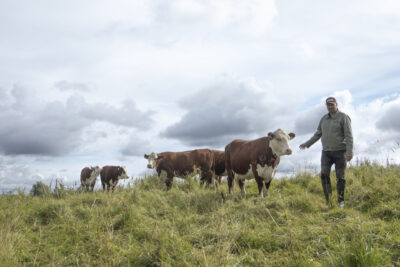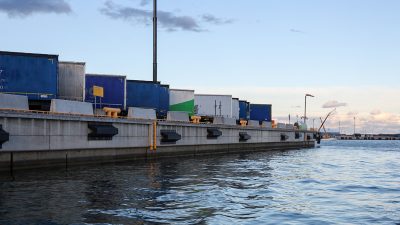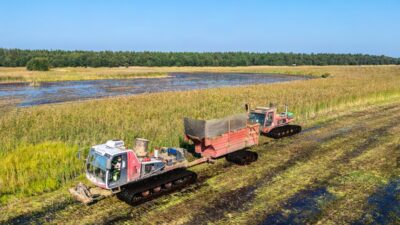Baltic Fish Project
Sustainable fish stock management of underused fishes helps the eutrophicated Baltic Sea, and provides consumers with a new, climate and waterway-friendly source of protein. In 2019-2021, encouraged by Finland’s successful Local Fishing project, the John Nurminen Foundation, Race for the Baltic, Guldhaven Pelagiska, Rädda Lumparn, and Ålands Fiskarförbund carried out the Baltic Fish project, which managed to raise interest, and establish market-based management fishing of cyprinids. The Baltic Fish project was co-financed by the Finnish and Swedish governments’ Baltic Sea Action Plan Trust Fund, which in turn is managed by the Nordic environmental financing company NEFCO.

More information
Emma Gabrielsson
Projektipäällikkö
Race For The Baltic
emma@raceforthebaltic.com
raceforthebaltic.com
Teija Aho
Toimitusjohtaja
Guldhaven Pelagiska AB
teija@guldhaven.se
http://guldhaven.se/fi/
Carina Aaltonen
Varapuheenjohtaja
Föreningen Rädda Lumparn
carina.aaltonen@lagtinget.ax
Linda Sundström
Ålands Fiskarförbund
fiskare@aland.net
Dennis Hamro-Drotz
Senior Investment Manager
NEFCO
dennis.hamro-drotz@nefco.fi
https://www.nefco.org/
Baltic Fish -project walks in the footsteps of the Local Fishing -project
Besides being a very cost-efficient measure to combat eutrophication, the cyprinid fish provides a new revenue stream for local fisheries and a healthy and responsible local protein source to end consumers. Finland has taken a head start in fishing cyprinid fish for human consumption. In 2015, the John Nurminen Foundation launched a project to commercialize cyprinid fish from the Baltic Sea for human consumption. First commercial bream products were on the market in 2017. Following the project’s great success, Finnish and Swedish organizations including Race For The Baltic, Guldhaven Pelagiska, Rädda Lumparn, Ålands Fiskarförbund and the Foundation expanded management fishing to Åland Islands and Sweden.
The Baltic Fish project worked closely with local authorities to create rules for sustainable management fishing and monitoring of fishing practices in Sweden. Moreover, the project collaborated with commercial producers and partners to establish well-functioning production chains and commercialization of the products. The project gave an excellent opportunity to launch sustainably sourced local fish products into the Swedish market and to meet increasing consumer demands for environmentally friendly seafood.
Delightfully, many professional fishers became increasingly interested in fishing cyprinids. The project was joined by a total of nine fishers from Sweden, from the shores of the Bay of Bothnia all the way to the waters of Gotland. During the project 52 tonnes of cyprinids were fished in Sweden and 2 tonnes in Åland. This means that the fishing activities carried out under the project removed about 400 kg of phosphorus from the sea.
Cyprinids: healthy, delicious, and Baltic Sea-friendly
The first product, bream patty for institutional kitchens, was launched on the Swedish market in December 2019. At present, minced bream is also found on the market, as well as a patty from Gotland’s fishermen who were working with the project, which is available for sale in local markets. In Åland, a few restaurants as well as school kitchens have tested minced bream and bream burgers have been served at several local events. Unfortunately, no proper production chain was formed for cyprinid fish in Åland.
One of the project’s goals was to spread information about the benefits of consuming cyprinid fish. In autumn 2020, Race For The Baltic launched the new website braxen.nu for the Swedish market in particular. Delicious fish recipes and background information on sustainable fishing is available on the pages. Swedish municipal kitchens and schools have in fact ordered over 100 free tasting boxes from the site.
In Sweden, concerns are raised about the levels of harmful substances in fish from the Baltic Sea. A study on harmful substances, conducted by the Swedish University of Agricultural Sciences (SLU), indicates however that the moderate use of cyprinids as part of a diet does not comprise a health risk. A more detailed report on the environmental toxins can be found behind this link. This protein-rich, healthy, and delicious fish is also low on emissions. The carbon footprint of minced bream, calculated by the research institute of Sweden (RISE), is 0.5 kg CO2 equivalent per 1 kg of bream, i.e., extremely low.

The project ended in September 2021, but the work for sustainable fishing will continue, both in Finland and in Sweden. Race For The Baltic will continue working together with fishermen and local and national authorities in Sweden to build a permanent, long-term, sustainable cyprinid fishing along the coast of the Baltic Sea. A new project to improve co-operation between different actors is also planned in Åland to continue the work started on the Baltic Fish project.
In cooperation with



